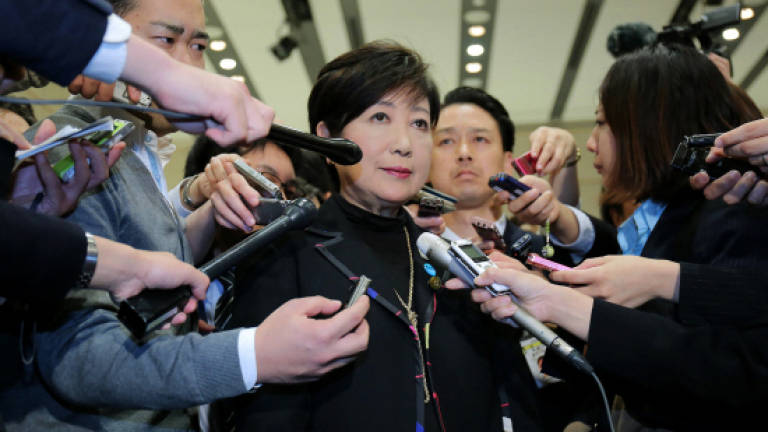Japan's Koike steps down as party head (Updated)

TOKYO: Tokyo Governor Yuriko Koike, once seen as a possible first Japanese female prime minister, stepped down as leader of her party Tuesday after suffering a crushing election defeat last month.
Vowing to do away with "old politics," the charismatic former television anchorwoman launched a new party in September that aspired to offer an alternative to the long-governing Liberal Democratic Party and its leader Prime Minister Shinzo Abe in the Oct 22 snap elections.
Her new "Party of Hope" fielded 235 candidates for the poll but won a mere 50 seats while Abe's ruling coalition grabbed a two-thirds majority.
Koike's support imploded partially because she failed to stand herself in the election — confusing voters who did not know who would be premier if she won.
In opinion polls conducted by the Sankei Shimbun at the weekend, support for her party dropped to 3.9% from 9.5% last month, with more than 77% of respondents calling on her to concentrate on her job as Tokyo governor.
"Stepping down as the head, I want to support you in an appropriate capacity," Koike told a party conference after it selected its executive members.
Koike said she would stay within the party while focusing on her job as governor of Tokyo, with the capital set to host the Summer Olympics in 2020.
"I have finished my responsibilities as the founder," she told reporters.
"As governor I will put the metropolitan administration first and cooperate with lawmakers of a reborn Party of Hope," she added.
'Iron plate'
The 65-year-old was elected Tokyo governor last year, one of several jobs the trailblazer has been the first woman to fill.
She once complained that Japan has not just a glass ceiling but an "iron plate" holding women back.
The creation of the "Party of Hope" sent shockwaves through Japanese politics and caused the immediate implosion of the main opposition party, as scores of members pinned their colours to the Koike mast.
But critics attacked her both for lacking a clear policy platform and for taking a dictatorial approach to the new party — she reportedly forced potential members to sign a pledge that was leaked to the media.
"It was a complete defeat," Koike admitted after the election, acknowledging she had been guilty of "arrogance".
Since she first won an upper house seat in 1992, Koike has frequently changed political affiliations but always stayed close to powerful bosses.
She joined the LDP in 2002, and became environment minister in 2003 and the first woman defence minister in 2007 during Abe's first short stint as a prime minister.
In 2016, she defied LDP leaders and won a landslide victory against the party's candidate in the Tokyo gubernatorial election, portraying the long-governing party as being controlled by secretive, wasteful bosses. — AFP